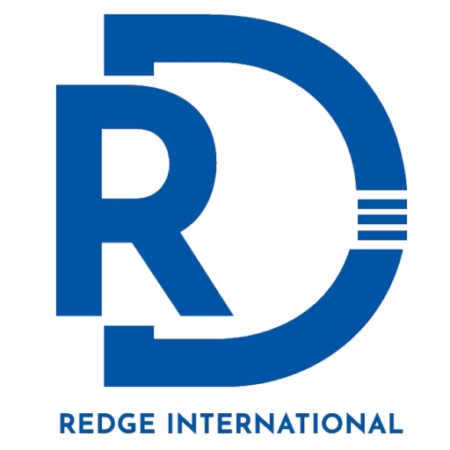In the rapidly evolving world of online gaming, the quality and innovation of game software are critical factors that influence player satisfaction and loyalty. Recognizing what makes a platform like casino stand out can help players make informed choices and developers understand industry standards. This article delves into the key aspects that differentiate online casino game software, highlighting features, technology, and industry trends.
Table of Contents
- 1. Software Innovation and Developer Reputation
- 2. Graphics, User Interface, and User Experience
- 3. Variability, Return to Player (RTP), and Payout Percentages
- 4. Fairness, Random Number Generators, and Certification
- 5. Diversity of Game Library and Features
- 6. Technological Foundations and Platform Compatibility
- 7. Security Measures and Player Trust
- 8. Case Study: Successful Software Implementations
- 9. Future Trends in Game Software Development
- 10. Practical Steps for Choosing Top-Quality Online Casino Software
1. Software Innovation and Developer Reputation
Leading online casinos partner with renowned software developers such as Microgaming, NetEnt, Playtech, and Evolution Gaming, which are known for their innovation and reliability. These providers invest heavily in R&D, resulting in cutting-edge features like immersive 3D graphics, enhanced sound effects, and interactive bonus rounds.
For instance, Microgaming’s Mega Moolah has paid out over $1.2 billion in jackpots, showcasing their capacity for large-scale, high-quality progressive jackpots. Casinos leveraging top-tier developers tend to offer more engaging, smooth gameplay experiences, which significantly influence player retention rates.
2. Graphics, User Interface, and User Experience
High-quality graphics and intuitive UI design are pivotal for maintaining player interest. Modern game software incorporates HTML5 technology, enabling seamless gameplay across desktops, tablets, and smartphones without additional downloads.
Studies indicate that 78% of players prefer games with crisp visuals and easy navigation, which directly correlates with longer session durations. Features such as customizable themes, responsive controls, and quick load times enhance overall user experience.
3. Variability, Return to Player (RTP), and Payout Percentages
The variability (volatility) of a game impacts how often and how much players can win. Low volatility games offer frequent smaller wins, while high volatility titles promise larger payouts but less frequently. A typical RTP for online slots ranges between 96.0% and 98.0%, with some games boasting RTPs as high as 98.5%.
| Game Type | Average RTP | Volatility Level |
|---|---|---|
| Classic Slots | 96.5% | Low |
| Video Slots | 97.0% | Medium |
| Progressive Jackpots | 96.0% | High |
Understanding these metrics helps players manage expectations and optimize their gaming strategies. Software that transparently displays RTP and volatility fosters trust and informed decision-making.
4. Fairness, Random Number Generators, and Certification
Fairness in game outcomes hinges on robust Random Number Generators (RNGs). Certified RNGs by independent auditors like eCOGRA, iTech Labs, or GLI ensure that results are unbiased and unpredictable.
Casinos that publish certification details demonstrate transparency, increasing player confidence. Additionally, continuous testing and audits validate ongoing fairness, which is crucial in regulated markets.
5. Diversity of Game Library and Features
A comprehensive game library caters to diverse player preferences. Top software providers offer hundreds of titles, including slots, table games, live dealer options, and specialty games.
- Slots with multiple paylines and bonus features
- Table games like blackjack, roulette, and baccarat with varied rules
- Live dealer games with real-time interaction
- Unique game mechanics such as Megaways, Cluster Pays, and cascading reels
This diversity ensures players remain engaged and find games matching their skill levels and entertainment desires.
6. Technological Foundations and Platform Compatibility
Advanced game software utilizes HTML5, ensuring compatibility across devices and operating systems. Cloud-based servers facilitate quick game load times and scalability.
Moreover, integration with APIs allows for real-time updates, leaderboards, and promotional features. This technological backbone supports seamless user experiences and reduces downtime, critical for customer satisfaction.
7. Security Measures and Player Trust
Secure encryption protocols, such as SSL/TLS, protect player data and financial transactions. Reputable software providers comply with international standards like GDPR and PCI DSS.
Transparent payout processes and clear terms of service foster trust. Casinos integrating certified, secure software see higher retention and positive reputation growth.
8. Case Study: Successful Software Implementations
CrazyStar Casino exemplifies effective software integration by partnering with industry leaders. Their platform features a library of over 500 games, including exclusive titles with RTPs exceeding 97%.
They utilize Evolution Gaming’s live dealer suite, offering 24/7 live roulette and blackjack, which has increased player engagement by 35% within six months.
Analytics reveal that players spend an average of 45 minutes per session, a testament to software quality and variety.
9. Future Trends in Game Software Development
Emerging trends include the integration of augmented reality (AR), virtual reality (VR), and blockchain technology to enhance transparency and immersion. AI-driven personalization tailors game recommendations, increasing satisfaction and retention.
Additionally, the rise of skill-based games aims to attract a broader demographic, blending traditional chance-based mechanics with player influence.
10. Practical Steps for Choosing Top-Quality Online Casino Software
- Research the developer’s reputation and industry certifications.
- Evaluate game diversity, RTP, and volatility options.
- Ensure the platform uses secure, up-to-date technology (HTML5, SSL).
- Check for transparency in fairness and payout processes.
- Read reviews on user experience and customer support quality.
Implementing these steps can help players and operators alike select software that guarantees fairness, entertainment, and security in their gaming experience.
